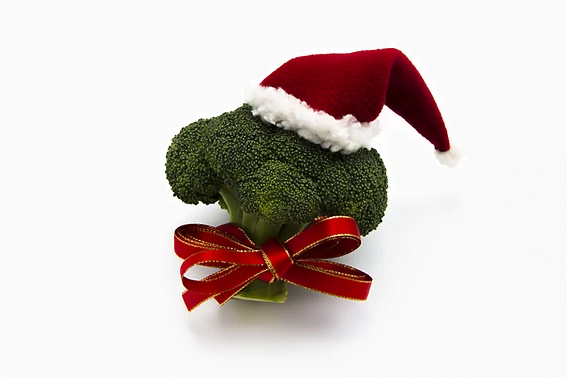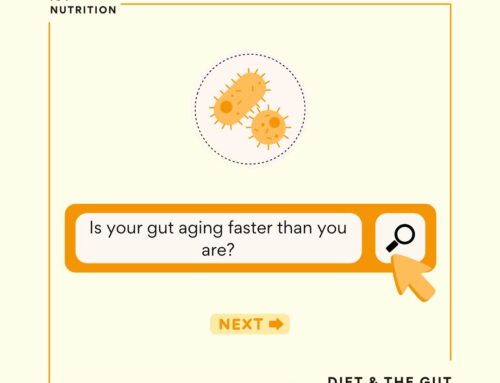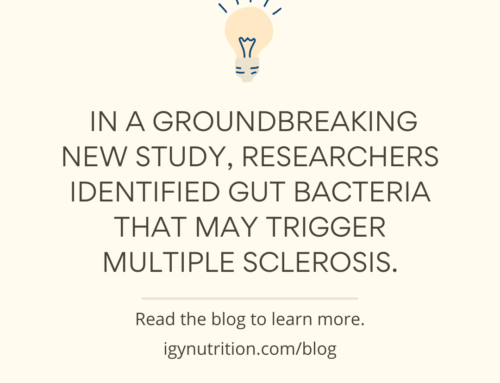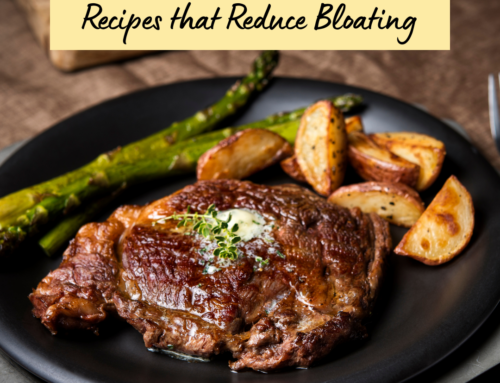The holiday season is full of eating, drinking, and merriment, which inevitably leads to the holiday blues – regret we feel after indulging a little too much and putting on a few extra pounds. But it’s “normal,” right? So normal that the most common New Year’s resolution is weight loss. By the time January comes, we are bombarded with advertisements for gym memberships, cleanse/detox programs, and healthy food recipes so that we can beat the holiday blues.
While everyone is focused on those extra pounds, few are focused on what their holiday eating has done to the balance of the bacteria in their gut and therefore their overall health and well-being. Diet can rapidly influence the balance of bacteria in the gut with a negative impact on health (1), and this change can happen in as little as 24 hours of altering the diet (2). By simply adjusting the distribution of carbohydrates, fats, and proteins in the diet through the amount of vegetable-based or animal-based food we eat can influence the makeup of the microbiome (3,4). High-fat foods and high calorie drinks often consumed during the holidays can definitely leave you imbalanced on more than the scale.
The good news is that you can improve this negative shift pretty quickly too.
A recent study assessed the impact of a 4-week Gut Makeover eating plan in 20 adults with no formal diagnoses on weight and parameters of physical and psychological health. The program consisted of the following:
-
Eating 3 meals per day, no snacks
-
Eating 5 cups of vegetables and 2 cups of fruits, plus a serving of protein with every meal
-
Fasting for 12 hours between dinner and breakfast
At the end of the study, participants reported the diet lead to weight loss, improvement in digestion and a reduction in complaints of digestive issues like gas, bloating, etc. There was also a reduction in negative symptoms related to cognition, memory and emotional well-being, including symptoms of anxiety and depression (5).
Perhaps those holiday blues are related to more than just not receiving all of the items on your gift list. This year it might be wise to give your guts a gift and make a holiday resolution instead of one in the new year. Resolve to consume healthy foods designed to support your gut health and pass on the high fat, high sugar holiday foods. You will enter the new year feeling balanced and healthy — both physically and psychologically!
-
Walker AW, Ince J, Duncan SH, Webster LM, Holtrop G, Ze X, et al. Dominant and diet-responsive groups of bacteria within the human colonic microbiota. ISME J 2011. February;5(2):220–230. doi: 10.1038/ismej.2010.118.
-
Wu,G.D., Chen, J.,Hoffmann, C., Bittinger, K., Chen, Y.Y., et al. (2011) Linking longterm dietary patterns with gut microbial enterotypes. Science 334, 105–108.
-
David LA, Maurice CF, Carmody RN, Gootenberg DB, Button JE, Wolfe BE, et al. Diet rapidly and reproducibly alters the human gut microbiome. Nature 2014. January 23;505(7484):559–563. doi: 10.1038/nature12820 [PMC free article] [PubMed]
-
Duncan SH, Belenguer A, Holtrop G, Johnstone AM, Flint HJ, Lobley GE. Reduced dietary intake of carbohydrates by obese subjects results in decreased concentrations of butyrate and butyrate-producing bacteria in feces. Appl Environ Microbiol 2007. February;73(4):1073–1078. doi: 10.1128/AEM.02340-06
-
Lawrence K, Hyde J. Microbiome restoration diet improves digestion, cognition, and physical and emotional wellbeing. Cappello F, ed. PLoS ONE. 2017;12(6):e0179017. doi:10.1371/journal.pone.0179017.




